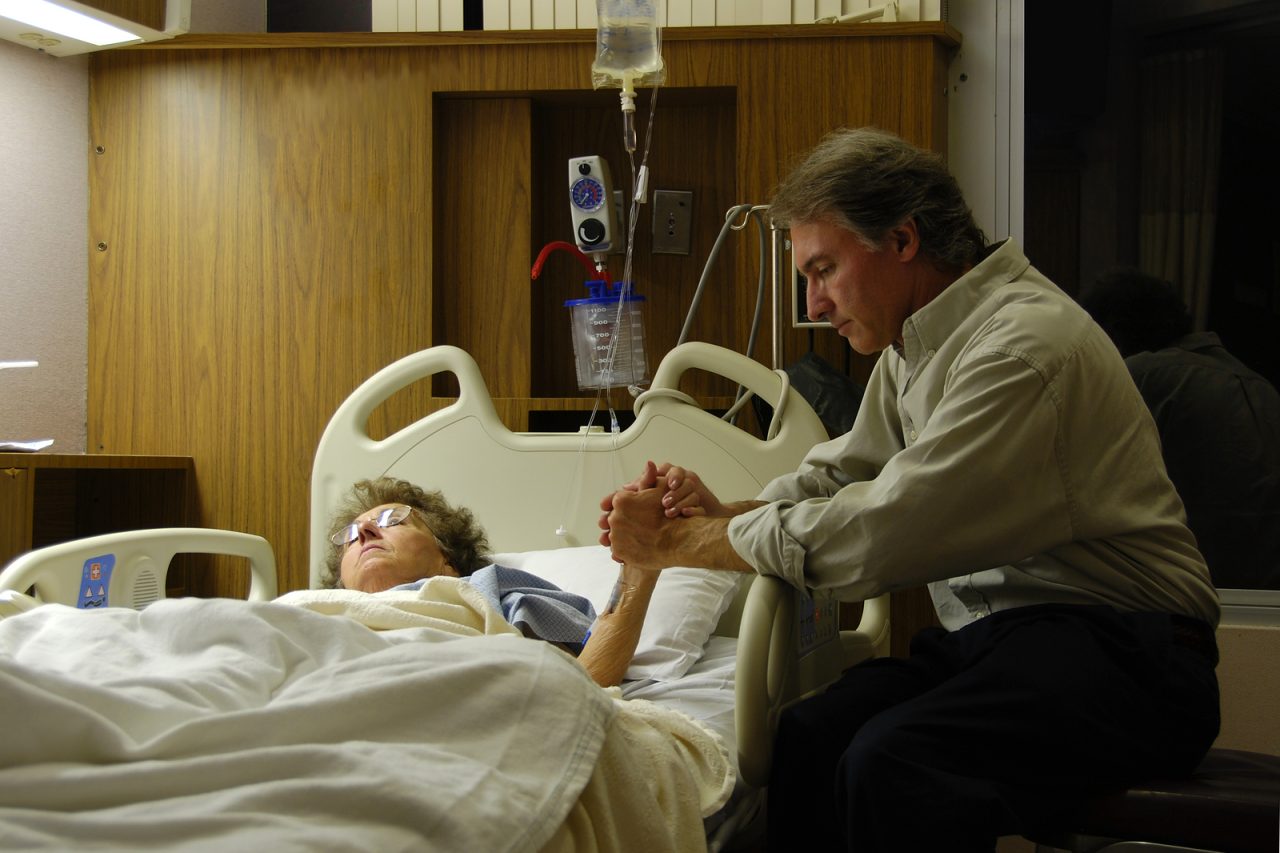Terry is a particularly difficult patient. She is not hard because of her cancer, which is in remission, nor is there a problem with pain, of which she has little, and Terry is not particularly demanding for the nursing staff. No there real problem, the challenge, the thing that makes her so difficult is that Terry is married. Terry is married to Dr. P and he is a particularly difficult man.
Terry’s husband loves Terry very much. He wants her to have the very best care. Dr. P makes certain that all the doctors know everything that is going on, all the time; he makes sure the nurses are on top of every detail; he demands the best from the all the hospital staff. In fact, Dr P works so hard to control Terry’s care, to stay on top of her case, to monitor every moment, it is nearly impossible to take care of Terry.
There are many challenges for doctors taking care of other doctors or their families, or, in reverse, there are many challenges for doctors when they seek care for themselves and their families. The result of this conflict is often inferior medical care. Therefore, wanting to honor and help doctors get good quality treatment let us take a moment to review the doctor verses doctor verses medical system dilemma.
First, it is hard for doctors to decide where to go for medical care. If you stay in the same community where you practice you lose some privacy and perhaps even respect in the physician community. Who do you chose and how do you avoid offending the other physicians you do not use? If you leave your own area, you lose the convenience and familiarity of getting care close to home.
Next, there is the tendency of physicians treating other physicians to give “special” care. The problem is that when we give special care, we deviate from training and protocol. When we deviate, we make mistakes. “Sure Dr Bob, your wife’s chest pain doesn’t sound like much so instead of dealing with the emergency room come by the office after-hours.” Years of training and experience, which produce professional judgment and wisdom, are thrown out the window to be polite and go that “extra mile.” The problem is that a mile may be too far.
Physicians and the medical system tend to treat doctors as, well, as doctors. We expect them to understand issues faster and have a sophisticated interpretation of events. We talk with them in medical-ease and assume they will cope the same way as when taking care of their own patients. I have seen physician spouses invited to join MICU rounds involving their loved one.
If a physician’s significant other is ill, there are always issues of guilt. “I discovered it too late”; “the medicine was not enough”; “I was not persistent or was too persistent”; “I should never have written that script”. This layer of guilt adds to the emotional burden of illness, and can lead to anger, confusion, and complicated grief. Attempting to assuage their own guilt physicians seize control of their loved one’s care, whether or not they have medical knowledge, with the result that the patient suffers.
The solution to all of these problems is essentially the same, but can be hard for naturally controlling physicians to handle. The answer is that a physician-patient is a patient, not a physician. A doctor of a loved one is not a doctor at all; they are family. Just as other patients must adjust to medical care and systems, assuming the “sick role” in order to get the best care, physicians must assume the proper role of patient and family.
Physicians should pick their doctors purely on the grounds of getting the best care; no other measure is proper. Other doctors and the medical system must treat physicians as patients. That means we use the same systems, the same protocols and the same approach as we would in any similar case. It means explaining medical events like you are talking to any layman, as if the doctor has no medical training. It is reasonable to use basic medical terms and concepts to communicate but to assume that a physician under personal or family medical attack can understand complex health concepts is to risk confusion and a bad outcome.
A doctor’s emotional circuits fry as fast as anyone else and they can rapidly become saturated. Doctors have seen every bad outcome and will often fear the worst, thus they may over react to minor setbacks. They may even give up when continued care is warranted. This extra layer of complexity is born out of the doctor’s years of emotional adjustment to disease, which in this situation may be counter productive; it must be anticipated and discussed. Paradoxically, physicians may be less able to cope with health care and need more support than a patient who has never before set foot in a hospital.
Doctors should not be allowed to take control of the care of loved ones and in reverse should not demand real control, beyond that guaranteed to each patient and family. Treating physicians must be aware of potential guilt that can lead to controlling behavior and remember that improper control can amplify future guilt.
When a doctor or his family is ill they are patient or loved one. This is a special role that no one else can fill and is vital. By helping physician-patients focus on healing and not being responsible for care, we make the chance that they will return to healthy lives that much greater. For our friends and colleagues there can be no finer honor.







3 Comments